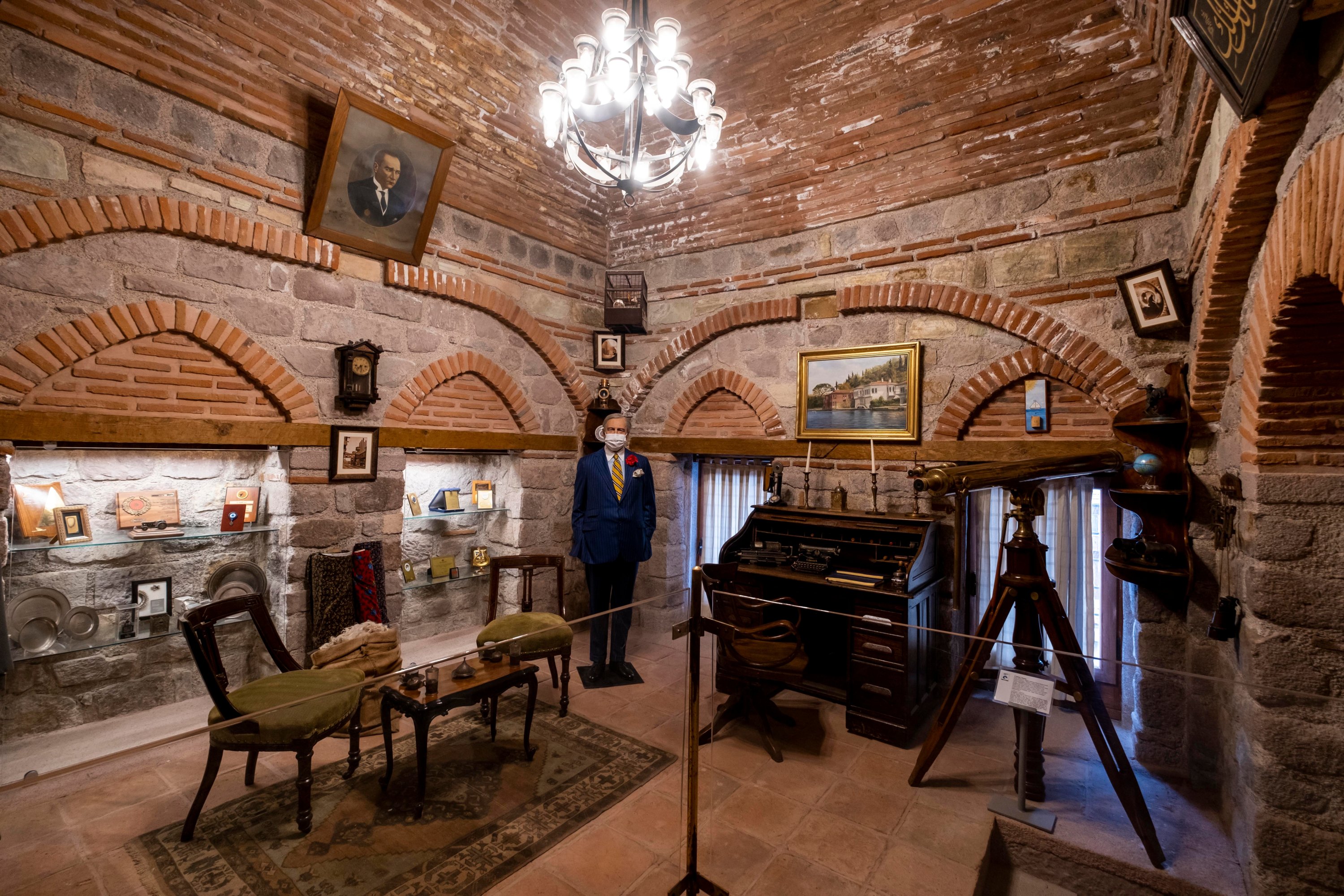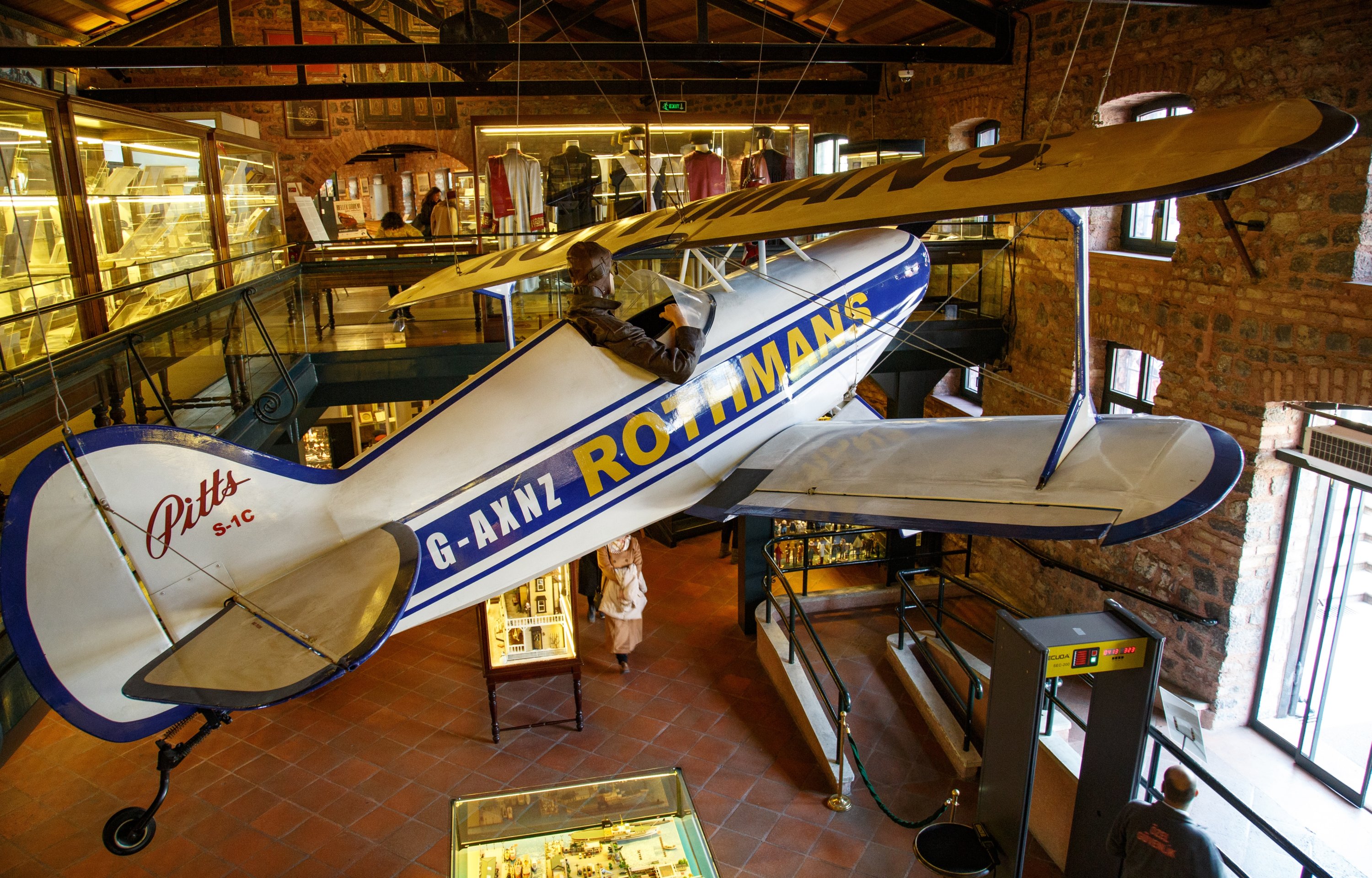© Turkuvaz Haberleşme ve Yayıncılık 2024
This week, Türkiye celebrated Victory Day, which is also an ode to the nation’s military forces. Given the great legacy this land has of battles through the ages, it should come as no surprise that there are some spectacular museums that showcase warfare artifacts spanning much of Türkiye’s history.
While Topkapı Palace is certainly not a military museum per se, the museum and its “Hazine-i Hassa,” which is the treasury chamber, house more than 33,000 weapons dating back to 1,300 years. While the majority of the collection consists of weapons used during the Ottoman Empire, there are also a collection of weapons from other dynasties and cultures that had been preserved in Ottoman arsenals.
Located in a complex formerly serving as a military academy and, before that, a hospital, the Istanbul Harbiye Military Museum, which is now also a cultural center, has an expansive collection of battle artifacts from the 13th century. The building that houses the museum was built under the supervision of one of Dolmabahçe’s architects Garabed Balyan. One of the most exciting parts of visiting this spectacular museum is the daily performance of the Ottoman Janissary (Mehter) Band, which takes place every day at 3 p.m., except for Mondays and Tuesdays when the museum is closed.

Built in 1897 by the Ottoman Minister of Navy Bozcaadalı Hasan Hüsnü Pasha, the Istanbul Naval Museum is Türkiye’s first military museum and largest maritime museum. Conveniently located in Besiktaş’s Iskele Square, just next to where the ferries depart, the Istanbul Naval Museum (aka Istanbul Maritime Museum and Istanbul Deniz Müzesi in Turkish) contains 20,000 artifacts, including remnants of historical boats. The collection has a long history of traveling throughout the country, such as for protection during WWII. But it found its final resting home in 1961, sitting next to the mausoleum of the Turkish Chief Admiral Barbaros Hayrettin Pasha.
Situated in Yeşilköy, the Istanbul Aviation Museum (Havacılık Müzesi) is an indoor and outdoor museum showcasing the aircraft used in Türkiye over the past century as well as air force artifacts. The world’s first female fighter pilot Sabiha Gökçen officiated the museum’s opening in 1998.
Located on the Golden Horn in a complex that was once used by the Ottoman navy, the Rahmi M. Koç Museum houses a vast collection of items pertaining to all areas of industry, including transport, communications and science, of which many are inevitably connected to battle.
Located right along the Dardanelles Strait in the heart of the now lively university-city of Çanakkale, the Military Museum provides an interactive experience of the Gallipoli campaign, including a video tour and outdoor exhibits of a warship as well as personal effects of the soldiers from all over the world that served in this legendary war.
Certainly not to be outdone, the Gallipoli War Museum, which is located on the other side of the Dardanelles, houses a vast collection of 7,000 items pertaining to the Gallipoli Campaign. The museum houses both a traditional exhibition center as well as a multi-media simulation experience that consists of an audio-visual tour of 11 rooms with artifacts, photos and 3D visuals and mock-up barracks and chambers of the Turkish and Allied commanders of the war.

The Ankara Aviation Museum has an outdoor and indoor collection devoted to the history of aviation in Türkiye and the world. From replicas of historical aircraft to cockpits in which visitors can also sit in, the collection also includes models related to the flying tests of the 17th century Çelebi and a section devoted to Sabiha Gökçen and other Turkish female aviators.
The Bodrum Maritime Museum houses captivating collections on the maritime history of this historical region that is now Türkiye’s top holiday destination. Nonetheless, this museum is where visitors can learn about the legacy of the sea and the vessels, fishing, sponge-diving and even the sea shells of Bodrum.
Admittedly off the beaten path as it is located in Kars, the Kafkas Cephesi Harp Müzesi offers an interesting experience worth mentioning. The exhibitions consist of extremely-lifelike replicas of different aspects of battle, from the nurses to soldiers as well as other creatively designed visual exhibitions as well as traditional displays of artifacts of this war.
